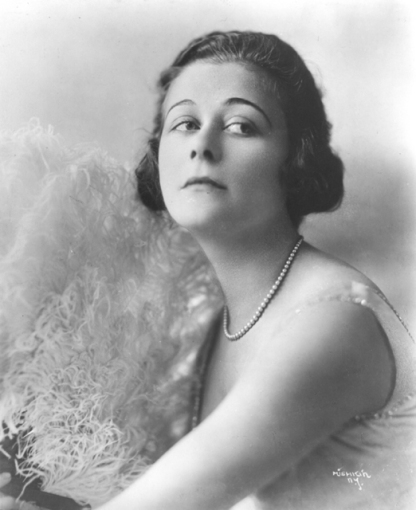
Sometimes it’s easy to forget that the 1920s and 30s were, actually, surprisingly kind to female screenwriters – as kind as the Hollywood studio system could be anyway. And none was more renowned than Frances Marion, the woman who is literally prefaced as ‘the most renowned female screenwriter of the 20th century’ in every bio. That acclaim, of course, is richly deserved.
Born in San Francisco, CA, in 1888, Marion worked as a photographer’s assistant and artist in her youth before becoming a reporter for the San Francisco Examiner. After her move to Los Angeles in 1913, she began working as a writing assistant in director Lois Weber’s film company. During that time, she worked as a war correspondent and eventually became the first woman to cross the Rhine after the armistice. In Hollywood, she wrote several scripts for her friend Mary Pickford, including Rebecca of Sunnybrook Farm (1917), Polyanna (1920) and The Love Light (1921), which she also directed. In 1925, she wrote the first film adaptation of Stella Dallas (1925), and in 1930, she won the Oscar for Best Adapted Screenplay for The Big House (1930), making her the first woman to win a Screenplay Oscar. In that same year, she wrote the hugely successful Min and Bill (1930), a vehicle for Marie Dressler, who won Best Actress. The next year, Marion won her second Oscar, for The Champ (1931), which in turn also earned Wallace Beery his Oscar. In 1933, she teamed up with Beery and Dressler again, in George Cukor’s Dinner at Eight (1933), which she co-wrote with Herman J. Mankiewicz. The popularity of Dinner at Eight, so soon after Min and Bill, saw her being credited with having revived Marie Dressler’s career. This was due in no small part to her ability to work with specific actors and to highlight their strengths as performers, and in a variety of genres; she wrote comedies, silents, crimes dramas, tear-jerkers, among others, in the course of nearly four decades. She retired in the 1940s, having written over 300 scripts throughout her career. In 1973, Frances Marion died in Los Angeles, at the age of 84.

Impressive!
LikeLiked by 1 person
Right?!
LikeLike
Nice to have you back Carol! I’ve heard about Frances Marion. Too bad her success didn’t lead to more women in this field right away.
LikeLiked by 1 person
Thank you!!!
Yes, but luckily the industry is changing! 😀
LikeLike
She looks so elegant! Thanks so much for putting the light on this talented lady!
LikeLiked by 1 person
She does indeed!
😀 😀
LikeLiked by 1 person